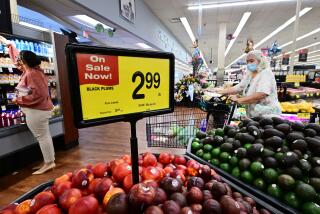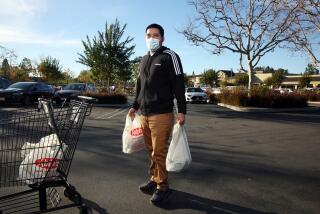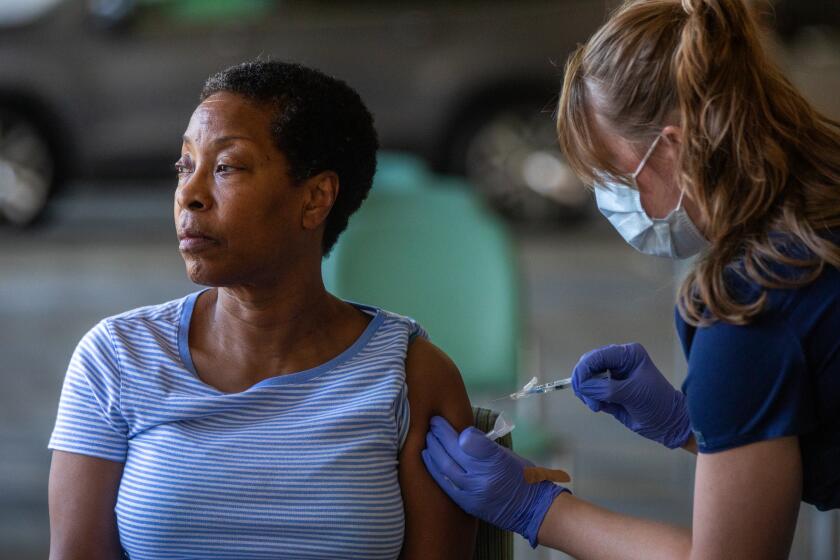Column: How coronavirus turned supermarket workers into heroes
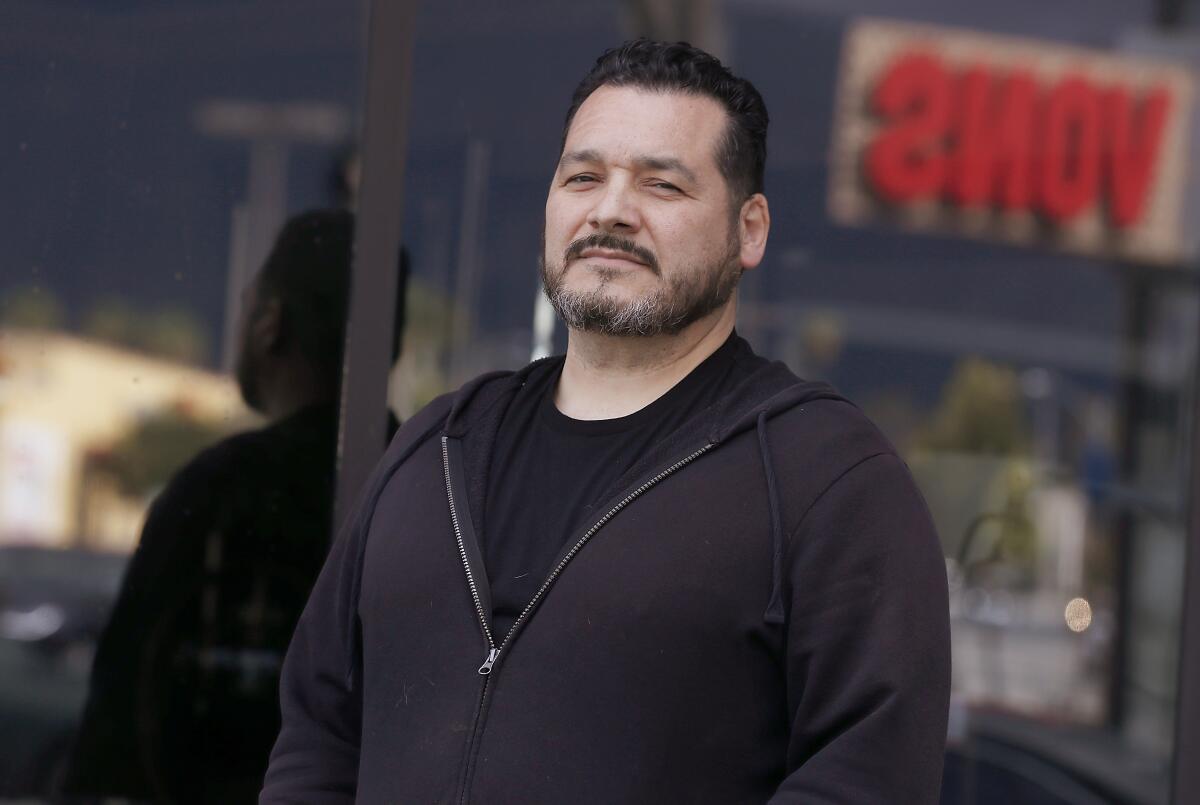
Raymond Lopez doesn’t carry a stethoscope or wear a gun. He’s more at home on a loading dock than in a fire station.
But as a grocery store worker, Lopez is on the front lines of our daily battle against a new enemy: coronavirus pandemic panic.
He’s been working at Vons since he snagged a summer job as a bagger in Camarillo, 33 years ago.
“Back then, everybody aspired to be a grocery worker,” Lopez told me. “It put food on the table, and you could support a family.”
Today supermarkets are playing a ground-zero role in our struggle to adapt to restrictions imposed by COVID-19. And grocery workers are bearing much of the the brunt of our anxiety and frustration, as we descend on depleted stores.
Without masks or barriers, employees are working long hours, risking infection and battling exhaustion to do their jobs. They connect us to material essentials, like bread and toilet paper. But they’re also part of the social fabric that holds us together in unsettling times.
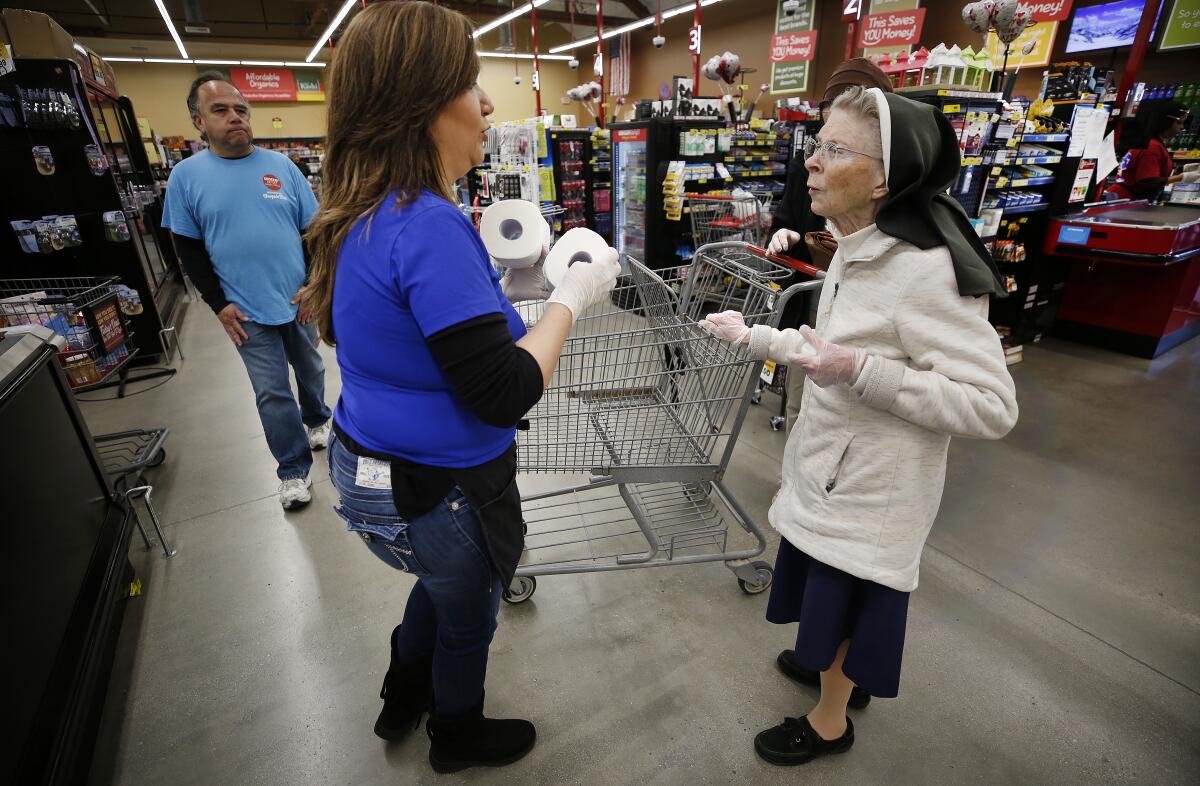
That friendly chat with the guy restocking the egg case this morning might be my only social interaction on this shelter-at-home day. And I feel better whenever I see my favorite cashier at her register. There’s something reassuring about the familiar in a world where everything has changed.
Markets are about the only place we’re still allowed to gather en masse. And their employees — pressed into service in ways they never expected — are our new first responders. They’re apt to see us at our worst, and they aim to ease our strain.
We ought to thank them for their service, not blame them because market lines are long or inventory is low.
“We’re being asked to do a lot more than we naturally would be,” said Lopez, who lives in Pasadena and works in Glendale.
Beyond the deep cleaning, shelf replenishing and crowd-control tasks, “there are all these new things, like figuring out the protective gear and learning how to interact with someone in the checkout line who is coughing or might be sick,” he said.
“It’s definitely an atmosphere where everybody’s nerves are heightened, but we don’t have time to sit and panic. We have a job to do.”
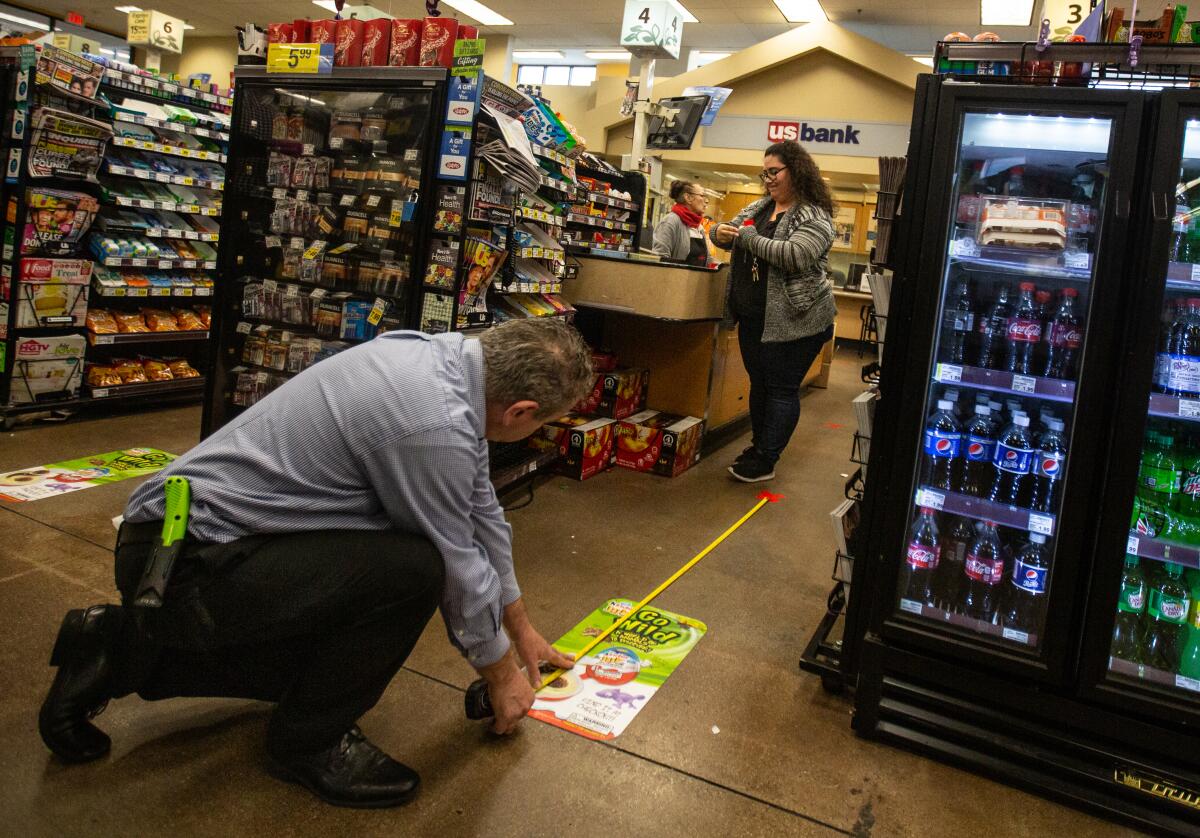
Lopez manages the order and delivery process at his Vons. He’s the person we expect to keep the shelves stocked, and Lopez and his team are working on overdrive.
“We’re all very grateful that customers are patronizing our stores,” he said. “But things snowballed incredibly fast … It’s a whirlwind right now, and I think people are getting really tired.
“We’re working six and seven days in row, staying late and coming in early. Because a lot of people are still out there, panic shopping for something.”
Stores are limited now in how much they can order from main warehouses, “so we more or less put our puzzle pieces together and try to figure out what we’re going to get,” he said.
They’ve taken guff from rude customers, “but we don’t fault them,” he said. “We have some snappy customers, some unhappy people, but we understand their frustration. They’re just trying to manage, like all of us.”
Still, I’ve witnessed scenes that make me marvel at their patience and understand why nerves are fraying.
On my Tuesday-morning foray to a local market for “senior shopping hour,” an angry woman delayed our entrance while she loudly berated the employee at the door because she wasn’t old enough to be admitted. We waited anxiously in line, in rubber gloves and paper masks, until he calmed her down and ushered us into the store.
That’s a common scenario, according to John Grant, a former meatpacker who is president of the union that represents grocery employees in Southern California. “We’ve heard from 2,400 members raising concerns about safety protocols, crowd control and access for seniors,” he said.
“They’re dealing with a public that’s fearful, apprehensive and frustrated, and it gets hostile,” Grant said. “This wasn’t what they signed up for, but they realize it’s their responsibility. They’ve cursed how vulnerable they are, and yet they keep going out of their profound dedication to their communities.”
I hadn’t thought about it much until now, but the supermarket has always been a place that bonded communities together. It’s the sort of impromptu gathering spot where I was apt to run into that old soccer-mom buddy, or find myself in line behind the principal I locked horns with when my kid was in middle school.
I was in the grocery store when I found out Kobe Bryant died; the cashier and I were both crying as she checked me out. And all around us, people from every walk of life were grieving in clumps or wandering around shell-shocked until they found someone to hug.
My chat with Lopez, who still loves his job, made me think about how I felt the last time I was stuck in a crowd of fearful shoppers: impatient and desperate to gather what I needed and leave, because everyone seemed to be sneezing or standing too close to me.
I remember rolling my eyes when the cashier stalled our checkout process so she could teach the elderly man in front of me how to use the Apple Pay app.
“My son put this on for me,” he announced, as he fumbled with his phone. It took forever to settle up for the $14 of dried lentils and canned tuna he bought.
I could hear the grumbling in the line behind me then: The cashier was inefficient; the old man was wasting our time. But now I think about that scene differently.
I imagine that man wandering aisles alone, confused and searching bare shelves. And I realize that cashier was not blind to the impatience of our line.
She was truly a first responder, attending to a more important but less visible need.
More to Read
Start your day right
Sign up for Essential California for news, features and recommendations from the L.A. Times and beyond in your inbox six days a week.
You may occasionally receive promotional content from the Los Angeles Times.

